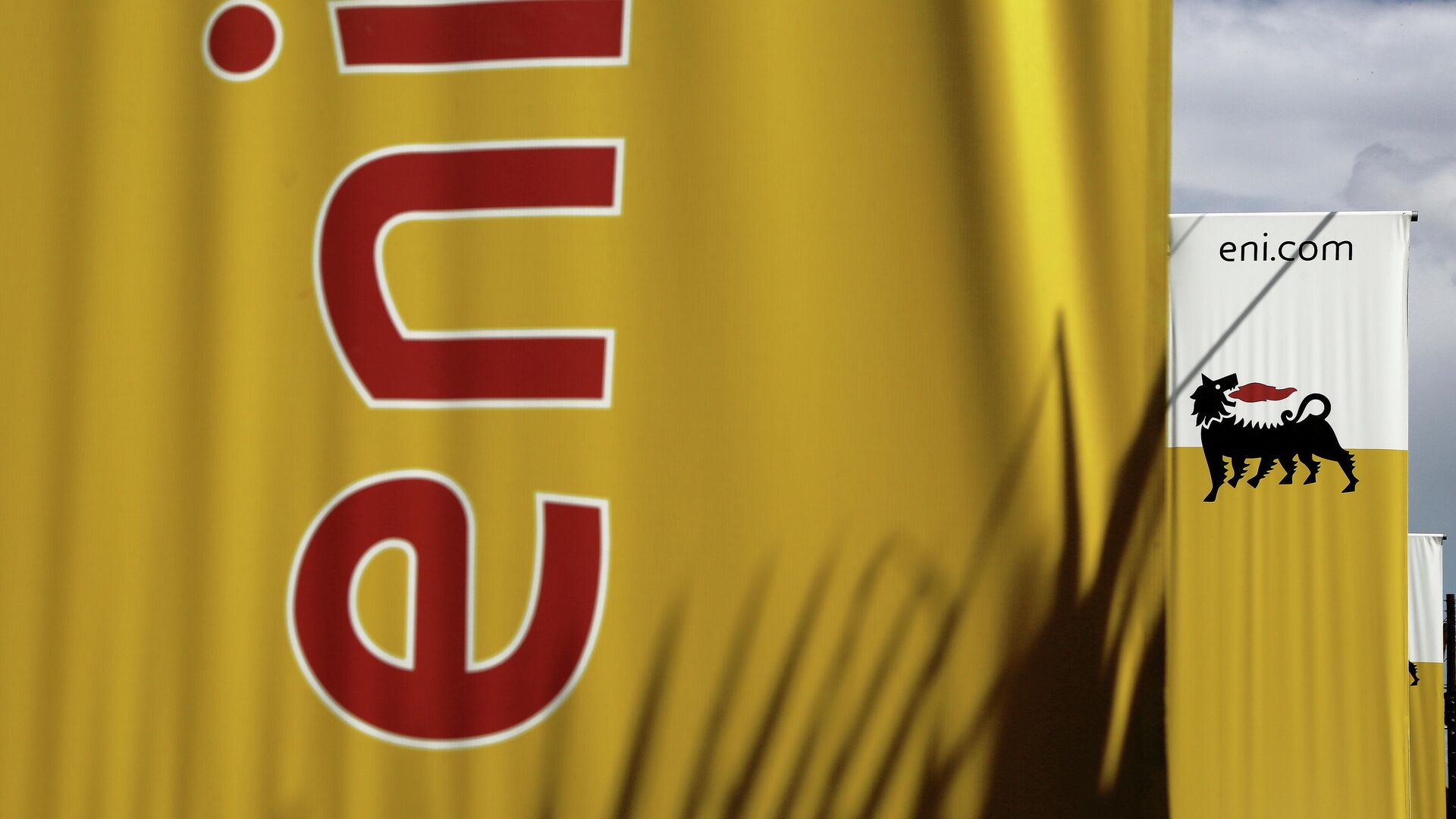https://sputnikglobe.com/20220318/italys-eni-considers-buying-gas-in-africa-europe-in-event-of-russian-supply-shortage-1093993520.html
Italy's Eni Considers Buying Gas in Africa, Europe in Event of Russian Supply Shortage
Italy's Eni Considers Buying Gas in Africa, Europe in Event of Russian Supply Shortage
Sputnik International
MOSCOW, March 18 (Sputnik) - Italian energy company Eni considers buying gas in Africa and Northern Europe in the event of a shortage in supplies from Russia... 18.03.2022, Sputnik International
2022-03-18T18:39+0000
2022-03-18T18:39+0000
2022-03-18T18:41+0000
europe
gas
https://cdn1.img.sputnikglobe.com/img/07e6/03/12/1093993277_0:46:3073:1774_1920x0_80_0_0_0a2a34e34f45bbf3f2bf79794ab39998.jpg
Signoretto added that currently the company receives gas from Russia on a regular basis.Earlier in the day, Eni CEO Claudio Descalzi presented the company's strategic plan for 2022-2025, which provides for bringing "on-stream 11 major projects" in Africa and the Middle East, and other projects in Italy, Indonesia and Norway. The company also considers "leveraging its global upstream and partnerships with producing countries to find alternative and additional gas supply opportunities" and "accelerating its decarbonization targets."The price of European gas futures reached a new record high of over $3,000 per 1,000 cubic meters for the first time in history on March 7 after being on the rise for several months, therefore creating uncertainty and deepening the European energy crisis. The energy crisis is believed to be driven by increased demand for natural gas globally and heavy dependence on foreign energy deliveries, as well as the suspension of Russian gas pipeline Nord Stream 2, among other factors.The pipeline project, which was expected to deliver up to 55 million cubic metres of natural gas from Russia per year, was frozen by German authorities in the response to Moscow's decision to recognise the Donetsk and Lugansk People's Republics (DPR and LPR) and launch a special military operation at their behest to defend them against Kiev forces' attacks. The future of the Nord Stream 2 remains unknown as the EU proclaimed intentions to replace all energy supplies from Russia by the end of the year, despite failing to present a clear plan to achieve this goal.
Sputnik International
feedback@sputniknews.com
+74956456601
MIA „Rossiya Segodnya“
2022
Sputnik International
feedback@sputniknews.com
+74956456601
MIA „Rossiya Segodnya“
News
en_EN
Sputnik International
feedback@sputniknews.com
+74956456601
MIA „Rossiya Segodnya“
Sputnik International
feedback@sputniknews.com
+74956456601
MIA „Rossiya Segodnya“
europe, gas
Italy's Eni Considers Buying Gas in Africa, Europe in Event of Russian Supply Shortage
18:39 GMT 18.03.2022 (Updated: 18:41 GMT 18.03.2022) MOSCOW, March 18 (Sputnik) - Italian energy company Eni considers buying gas in Africa and Northern Europe in the event of a shortage in supplies from Russia, Cristian Signoretto, the company's deputy of chief operating officer natural resources, said on Friday.
"Nominal volumes [from Russia] are regular [...] We are trying to find opportunities for our portfolio in light of this uncertainty, especially from our projects in Africa, but also from other suppliers from Northern Europe, we have important connections with France and Germany [...] in case there is a shortage in supplies from Russia", Signoretto said.
Signoretto added that currently the company receives gas from Russia on a regular basis.
Earlier in the day, Eni CEO Claudio Descalzi presented the company's strategic plan for 2022-2025, which provides for bringing "on-stream 11 major projects" in Africa and the Middle East, and other projects in Italy, Indonesia and Norway. The company also considers "leveraging its global upstream and partnerships with producing countries to find alternative and additional gas supply opportunities" and "accelerating its decarbonization targets."
The price of European gas futures reached a new
record high of over $3,000 per 1,000 cubic meters for the first time in history on March 7 after being on the rise for several months, therefore creating uncertainty and deepening the European energy crisis. The energy crisis is believed to be driven by increased demand for natural gas globally and heavy dependence on foreign energy deliveries, as well as the suspension of Russian gas pipeline Nord Stream 2, among other factors.
The pipeline project, which was expected to deliver up to 55 million cubic metres of natural gas from Russia per year, was frozen by German authorities in the response to Moscow's decision to recognise the Donetsk and Lugansk People's Republics (DPR and LPR) and launch a special military operation at their behest to defend them against Kiev forces' attacks. The future of the Nord Stream 2 remains unknown as the EU proclaimed intentions to
replace all energy supplies from Russia by the end of the year, despite failing to present a clear plan to achieve this goal.

